Motorola Moto G82
Two-minute review
The Moto G82 is part of a venerable family. For years, the Moto G series made our job pretty easy. Looking for a budget Android? Then buy the latest Moto G – advice that has stood for years.
In 2022, though, there have been too many Motorola phones released for the average person to keep up, and there’s now much greater competition from brands such as Realme, Xiaomi and OnePlus.
However, the essence of the old Moto G spirit lives on in the Moto G82. It’s a sensible, reliable and uncluttered phone that comes with a fairly large OLED screen, 5G mobile internet, a decent amount of storage and stereo speakers, all at an appealing price.
This particular model is spiced up with OIS (optical image stabilization), but this doesn’t elevate the camera to anything like the level of the Pixel 6a. While OIS counters against taking blurry images indoors, the Moto G82 camera doesn’t perform brilliantly at night, plus has weaker hardware than some of its slightly pricier competitors.
The phone’s Snapdragon 695 SoC is also soundly beaten by the Qualcomm and MediaTek chipsets seen in phones that cost just slightly more.
If camera image quality in more challenging scenes is a priority, or performance in demanding games such as Fortnite, for that matter, you should check out alternatives such as the Google Pixel 6a, the OnePlus Nord 2T, Realme Neo 3T and Xiaomi Poco X4 GT before considering a Moto G82.
However, we can’t ignore that all of those devices typically cost more than the Moto G82, which should help turn down the volume on the numerous slightly weaker points detailed in this review.
Motorola Moto G82 price and availability
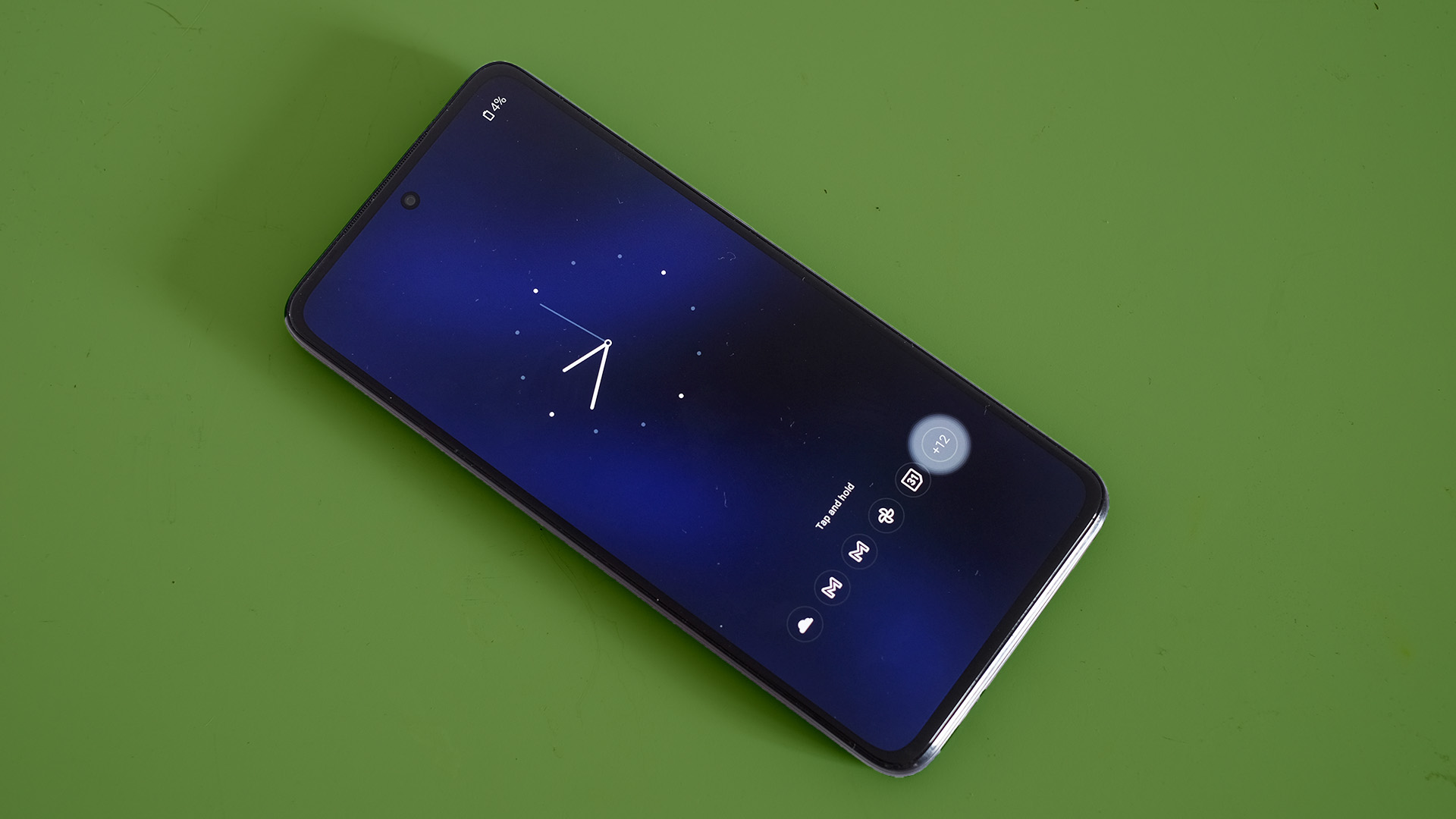
The Motorola Moto G82 5G was released in June 2022 alongside the Moto G62, a lower-end alternative housing a weaker processor, thicker body and an LCD screen in place of an OLED panel.
The G82 costs £289.99/$499AU, and while not widely available in the US at the time of review, it’s expected to cost around $365.
- Value score: 4/5
Motorola Moto G82 design
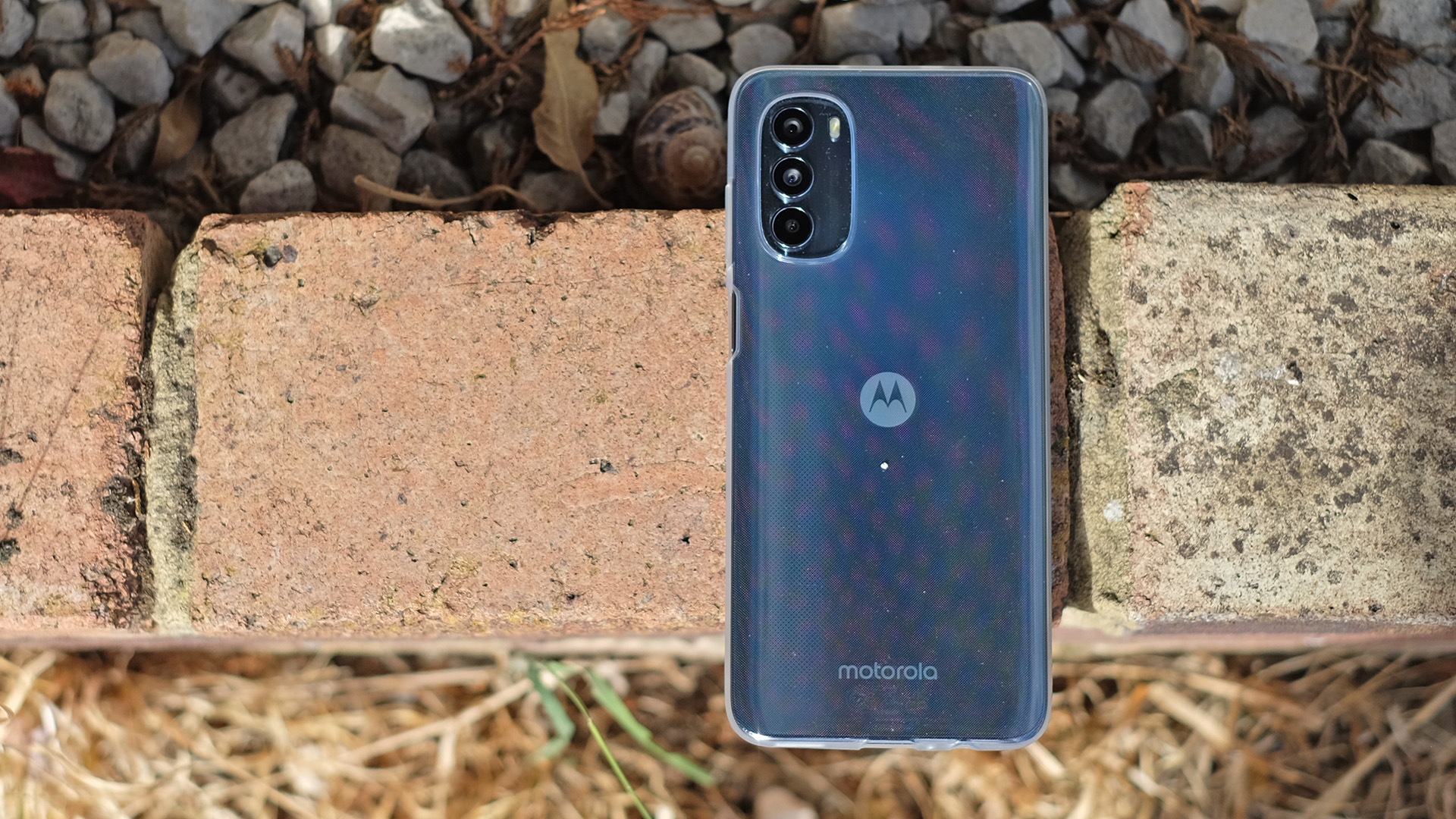
- Plastic build
- Headphone jack
- IP52-certified water repellent
The Motorola Moto G82 5G isn’t an outright beautiful phone; but it doesn’t need to be. Its build is pragmatic and simple, with plastic panels all-round, barring the glass protection of the screen.
Its finish, like several other recent Motorola devices, also appears to follow that thought process. A silicone case comes attached as standard. Take it off and the cold metallic finish looks a little too bold, the dotted pattern on the back as if it belongs further under the surface than it actually sits.
Putting the case back on disguises all this. A simple layer of silicone softens its appearance, and pushes the dotted pattern into the background where it belongs. Note that the Moto G82 doesn’t feel too thick with the case on either; at 8mm thick, it’s slimmer than some older phones in this series and the step-down Moto G62, which is 8.6mm thick.
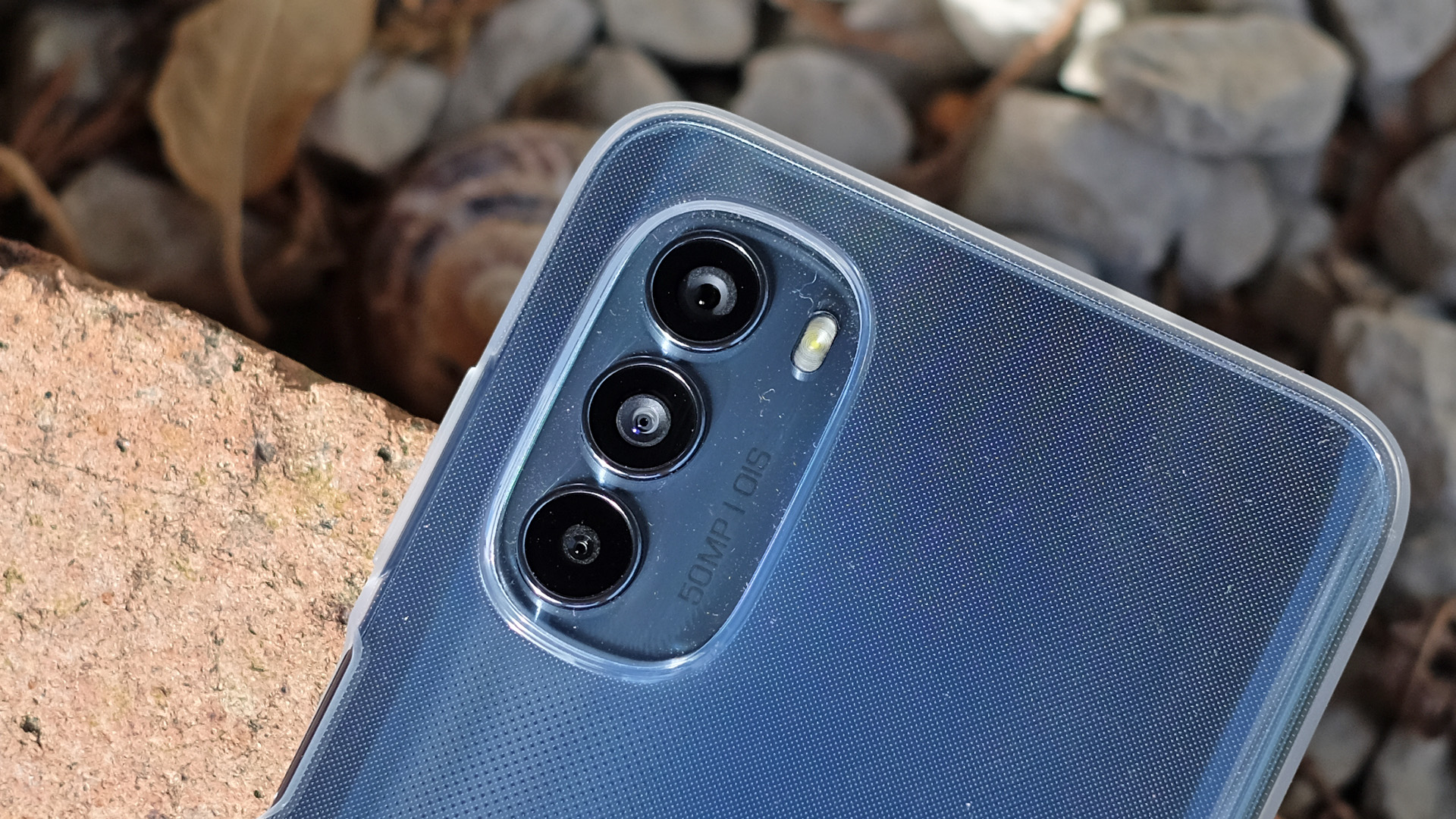
Case attached, the camera housing becomes the Motorola Moto G82 5G’s defining stylistic feature. An ultra-softened, rounded rectangle, the camera doesn’t come across as desperate to appear techy and advanced as some. That said, its “50MP” and “OIS” credentials are pasted alongside the lenses.
Any more coverage than the above and we end up over-analysing what is a fairly unadventurous but pleasant enough phone.
The Motorola Moto G82 5G has a side-mounted fingerprint sensor that’s just half a beat slower than the best. It has a headphone jack and stereo speakers – one above the screen; another in the standard spot along the phone’s bottom edge.
Their output lacks low-frequency clout, but they don’t sound thin. As a pair they’re loud enough to let you listen to a podcast while cooking or having a shower. A stereo-style dual speaker array is, of course, always a blessing for YouTube, other video streaming apps and landscape-orientation games.
In a similar vein, the Moto G82’s side-mounted fingerprint scanner doesn’t seem quite as high-tech as the in-screen style seen on a few rivals around this price. It’s fractionally slower than the very best, too; but, ultimately, it works perfectly well and has never failed to register a touch.
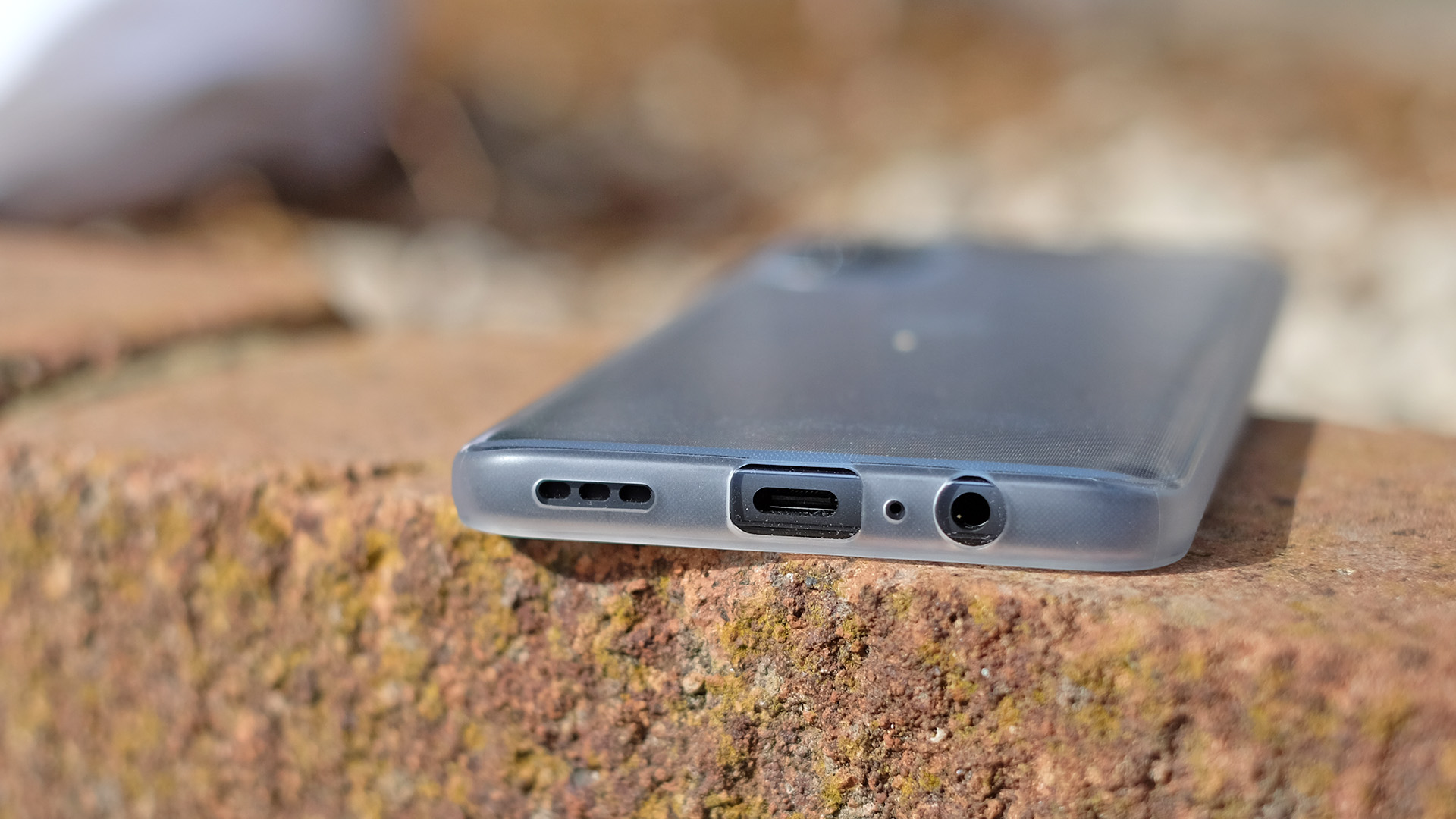
There’s some water-resistance, too. It’s described as “water repellent”, a term Motorola has used for years now, but this time there’s an IP52 rating attached.
This is about as low as gadget water-resistance gets — the “2” figure tells us it can withstand water sprays up to 15 degrees from vertical. In the real world this equates to a bit of rain, so the device should really be treated as a non-water-resistant mobile.
Finishing up the design traits, the Moto G82 has a 3.5mm headphone jack, and the SIM tray has space for either a microSD card or second SIM.
- Design score: 3.5/5
Motorola Moto G82 display
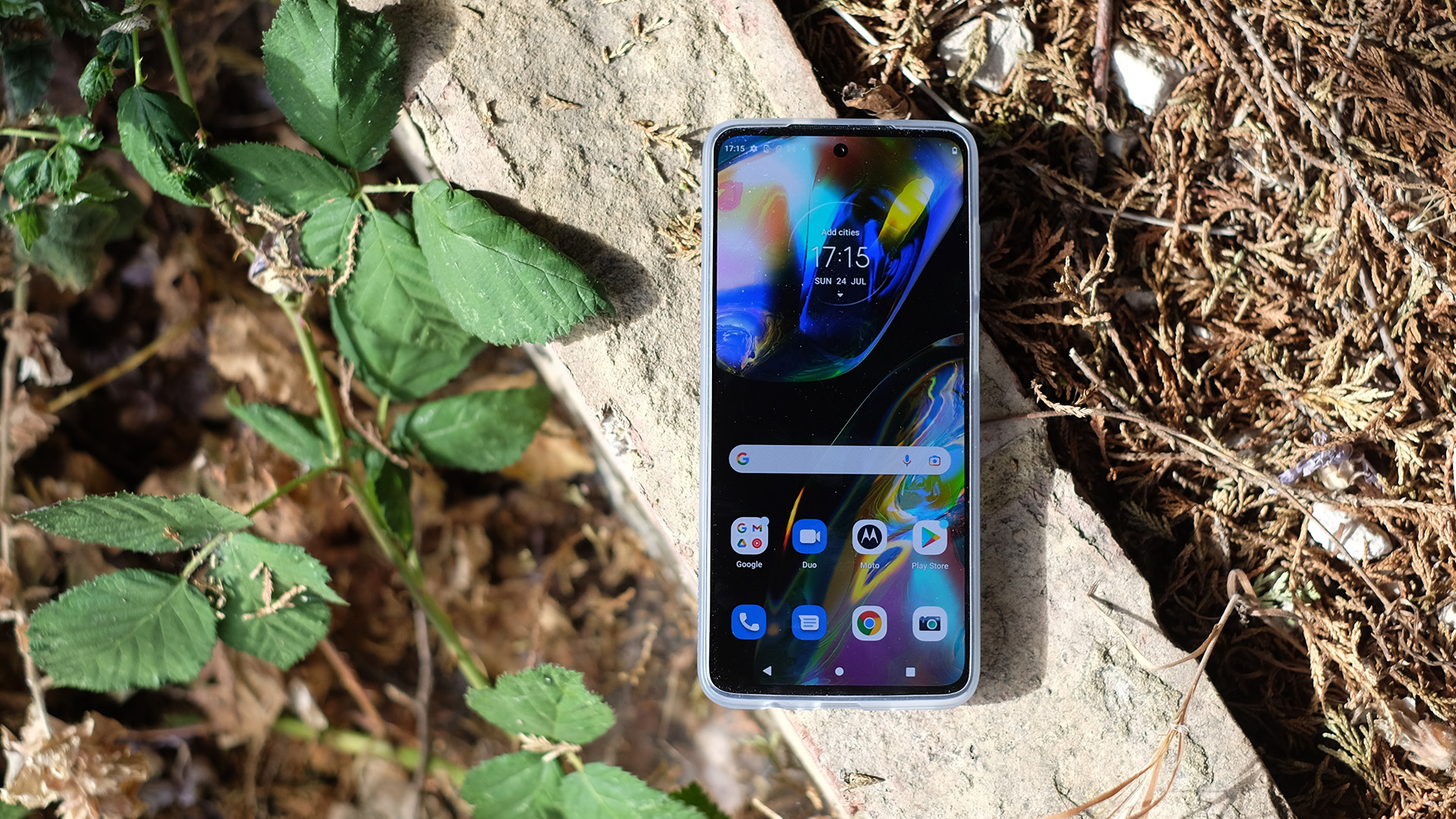
- 6.6-inch 120Hz Full HD OLED panel
- Customizable color profiles
- Peak brightness could be better
The Motorola Moto G82 5G has a 6.6-inch 120Hz screen with an OLED panel. It’s the spec you ideally want to see at this price, for the best contrast and color available in an affordable phone.
However, it isn’t the best display around. We found it reaches 650 nits in direct sunlight, which is noticeably lower than the 770 of the Realme GT Neo 3T. Did we find it outright dim outdoors? No – it’s largely fine, just not a category leader.
We also found the color temperature a little cool at the default setting. This is common, since a cooler tone can make a screen seem brighter and punchier. However, the Moto G82 looks better once it’s been tweaked slightly.
You can switch the Moto G82’s color from “Saturated” to “Normal” in the Settings menu, and a temperature slider allows for a warmer or cooler appearance.
Like some other OLED panels, the Motorola Moto G82 takes on a slightly blue-green tint at an angle. This lines up with reports we’ve seen that suggest the phone has an LG P-OLED panel rather than a Samsung one. The latest Samsung OLED panels tend to avoid this particular issue.
This is a 1080p screen, and it looks sharp and clean. Even if you spend a lot more on a phone, the most obvious improvement you’re likely to see is higher peak brightness in direct sunlight — and even that isn’t a given.
- Display score: 4/5
Motorola Moto G82 software and performance
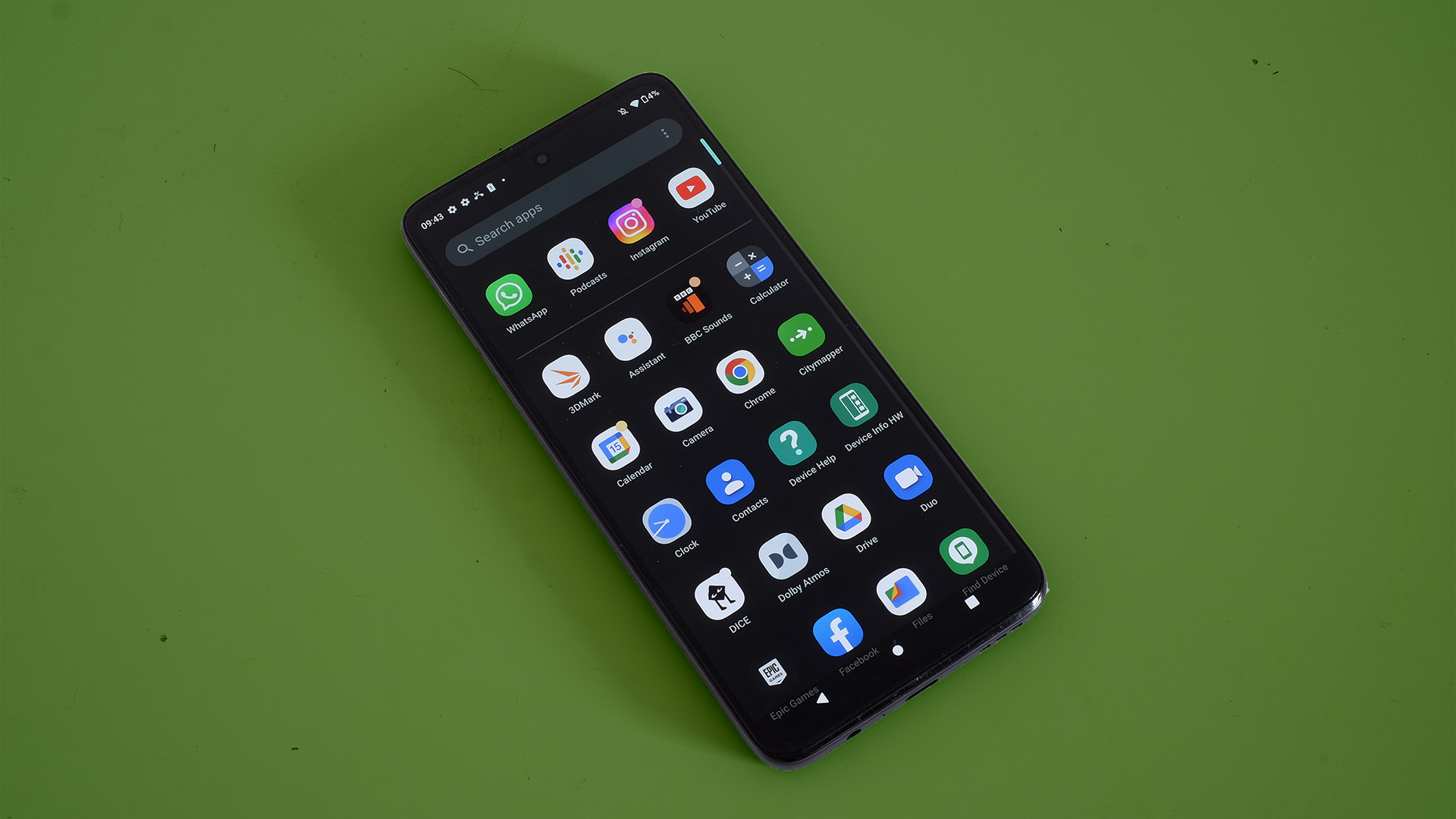
- Runs Android 12
- Qualcomm Snapdragon 695 chipset
- Motorola-specific shortcuts/gestures
The Motorola Moto G82 runs Android 12 and uses the classic Moto interface. This makes fairly light changes to the Google blueprint, meaning you get to see the changes made to Android’s Material Design style in version 12.
Drop-down menu items are now housed in colorful bricks. You can change this color in the Moto app, to give Android a more distinct flavor.
The Moto G82 also has Peek Display, an information screen that displays when the phone is, for example, picked up while “asleep”. It shows the time and battery life.
Like other Motorola phones the G82 also supports gestures, such as jumping to the camera app with two quick twists of the handset. Or you can toggle the torch with a double karate chop-style movement.
Android 12 feels largely slick and smooth in the Moto G82, although app loading and multi-tasking will seem marginally slower than a flagship Android. This phone uses the Qualcomm Snapdragon 695 CPU, a mid-range chipset also seen in phones such as the Sony Xperia 10 IV and Realme 9 Pro.
While its CPU performance is good, the GPU – the graphics side – isn’t nearly at the same level as the Snapdragon 870, for example. This means some graphics settings won’t be available in certain high-end games, and those without rock-solid performance optimisation may suffer from a patchy frame rate at times.
In Fortnite, for example, the Moto G82 is limited to the Medium graphics preset, and the 60fps mode available to some phones simply isn’t present in the Settings menu. This is largely because it wouldn’t be able to reach anything like that frame rate anyway. After playing a couple of rounds with the allowed settings, the phone did handle the game OK; but there are obvious frame rate drops when you take to the skies in one of Fortnite’s aerial vehicles.
This somewhat limited gaming performance isn’t going to matter to everyone. However, some phones around this price, such as the Realme GT Neo 3T and Poco X4 GT, perform better.
- Software and performance score: 3.5/5
Motorola Moto G82 camera
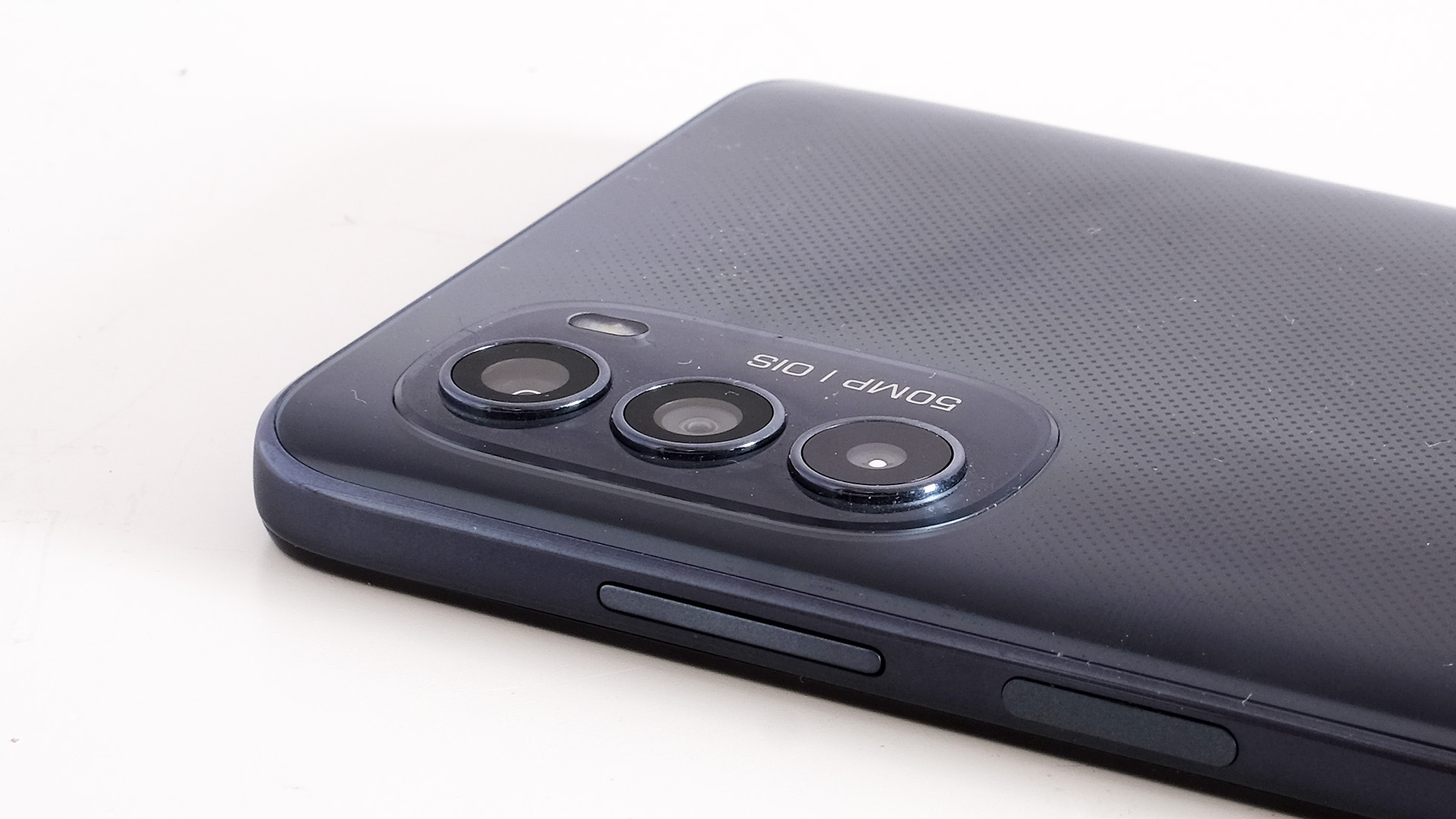
- 50MP-led triple rear camera system
- Boasts OIS (optical image stabilization)
- Quality lags behind competitors
The Motorola Moto G82 has three rear cameras, a 50-megapixel primary, an 8-megapixel ultra-wide and a 2-megapixel macro. Like all 2-megapixel macros, the one here is very poor.
Our primary uses the Samsung JN1, a budget sensor designed to capture 12.5-megapixel pictures. It’s a lot less technically impressive than the great Sony IMX766 sensor seen in the OnePlus Nord 2T, or the Samsung GW1 of the Poco X4 GT.
However, the Motorola Moto G82 also has optical image stabilization. This moves the camera lens slightly to counteract motion of the photographer’s hands. A few years ago, OIS was the only way to capture half-decent night images from a phone. But times have changed and night images these days are compiled using a whole stack of different pictures — a form of what is known as computational photography.
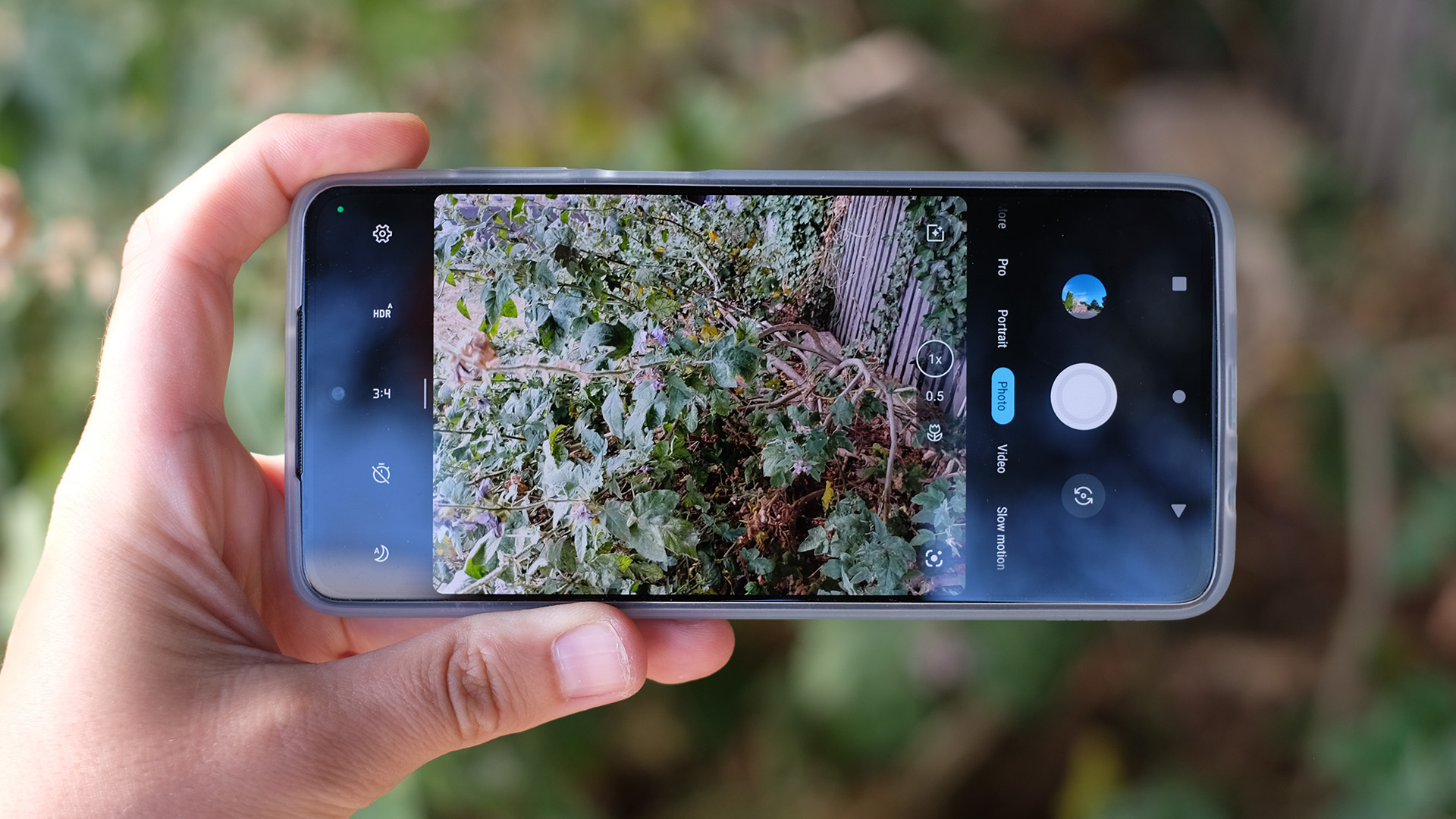
The Motorola Moto G82 doesn’t take particularly good night-time photos, which may make you question what the OIS is actually for. It isn’t required in good lighting, where the short exposure time makes handshake blur a non-issue. It does help you avoid blurry indoors images, though, when the exposure might extend to 1/20 of a second. But you can still get far better night-time results elsewhere.
Night photos aren’t even close to those from the Google Pixel 6a, for example – or, closer in price, the OnePlus Nord 2T. Even when you use the Night Vision mode, made for low light, truly dark pictures remain pretty dark, detail is limited, and what detail is present tends to look fuzzy and vague.
Don’t put too much stock in the Motorola Moto G82’s use of OIS. The budget would arguably have been better spent on a slightly better sensor.
However, the Motorola Moto G82 can take reasonably good-looking pictures during the day. Colors are engaging but not overbaked, the Auto HDR does a solid job of lifting shadows out of the doldrums, and avoiding blown-out areas in objects such as bright clouds.
Detail is generally fair, and the processing avoids the painterly appearance of some affordable phones. However, if you were to compare the Motorola Moto G82’s pictures with those of one of the best budget phone cameras – the Pixel 6a, for example – then you’d notice better texture reproduction and more confident-looking detail down at pixel level in rivals.
This is, in part, because the Moto G82 has a sensor with a small surface area compared to its resolution. The Samsung JN1 is a 1/2.76-inch sensor, a little smaller than the 1/2.55-inch Sony IMX363 of the Pixel 6a (which also benefits from native resolution shooting), and dramatically smaller than the 1/1.56-inch Sony IMX766 of the OnePlus Nord 2T.
Both are at least slightly more expensive, but are alternatives to consider if you’re keen on having a phone that can take good pictures at night.
The Moto G82’s 8MP ultra-wide camera suffers from the usual issues of secondary cameras in affordable phones. There’s significant loss of sharpness at the corners of the frame, and the lower dynamic range of the sensor is more likely to reveal the limits of the dynamic range processing, resulting in some blown out clouds in our test images.
However, the ultra-wide can still take perfectly shareable pictures with reasonably rich color and enough detail not to appear instantly compromised when thrown up on a laptop-size screen.
The Moto G82’s video is a flat-out disappointment. Chief among the complaints? It can’t shoot video at 4K resolution at all; 1080p is the max.
You’ll only see software stabilization when shooting at a 30fps frame rate. There’s a 60fps mode, but this appears to be completely unstabilized, which is doubly disappointing when the phone has OIS. It doesn’t appear to be used at all in photo capture.
We highly recommend sticking to the default 1080p/30 mode, since 60fps footage will look juddery if you don’t use a tripod, and the character of the image is far worse at 60fps. The picture looks significantly less detailed, and more aliased.
The Motorola Moto G82 5G’s 16-megapixel front camera shoots 4-megapixel pixel-binned images by default. You can capture 16-megapixel pics using the “high resolution” mode, but we don’t think this mode is worth using.
Pictures don’t look anything like four times as detailed – even in perfect lighting – and both dynamic range and image consistency are better if you stick to the 4-megapixel default. This isn’t a stellar selfie camera, but it’s solid enough to compensate for strongly backlit scenes and does OK with dimmer indoors lighting.
- Camera score: 3/5
Camera samples
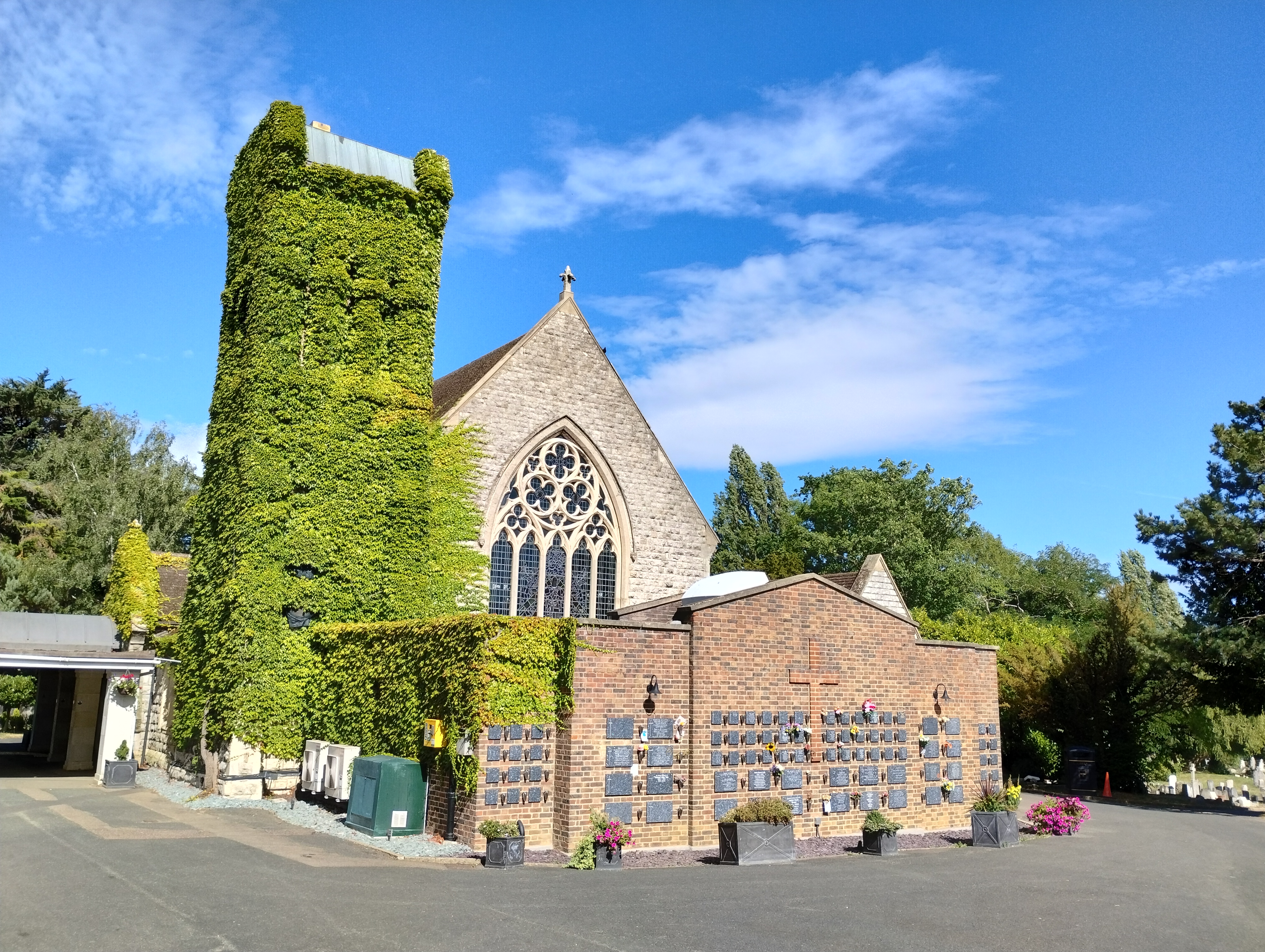

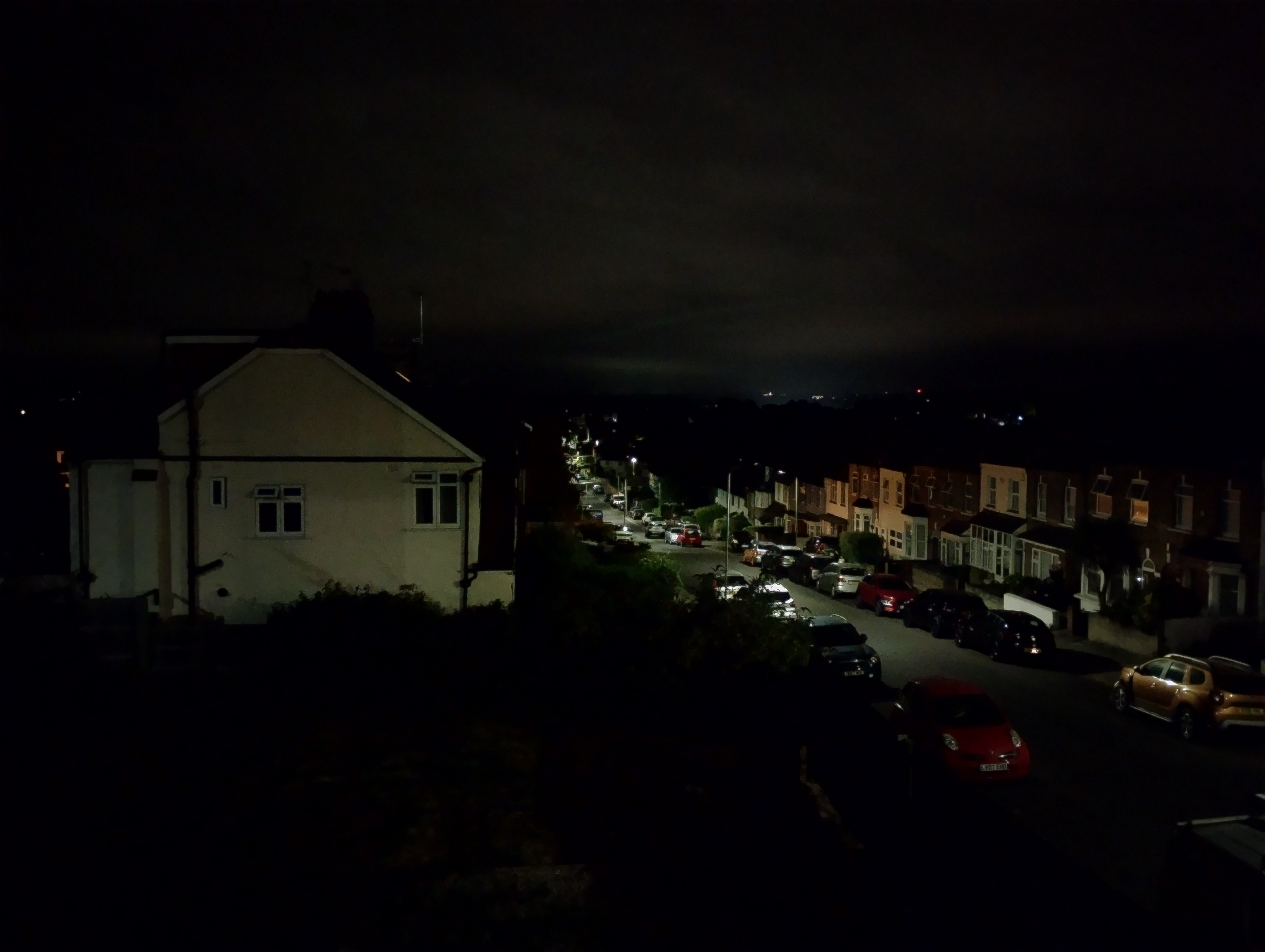
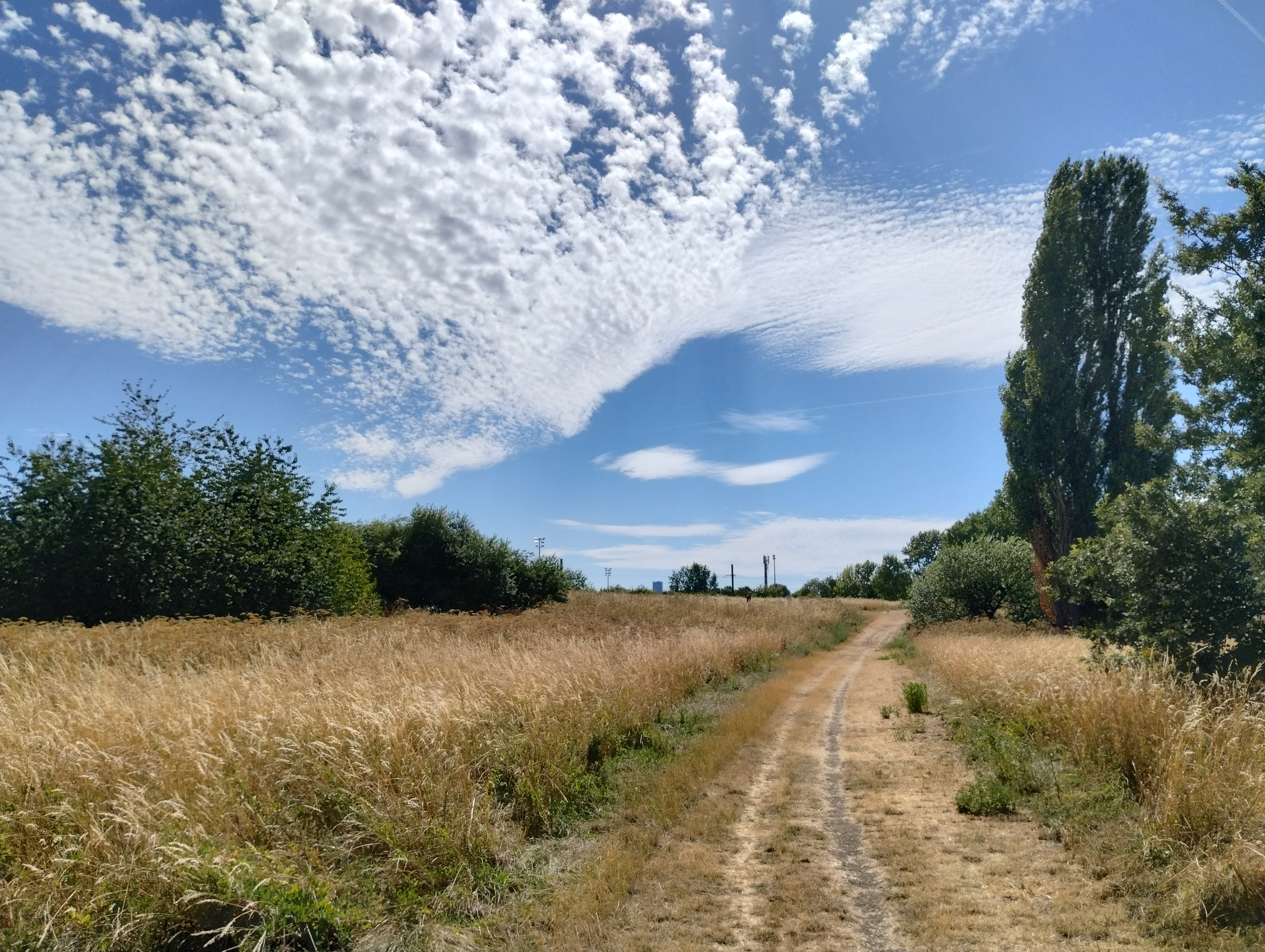


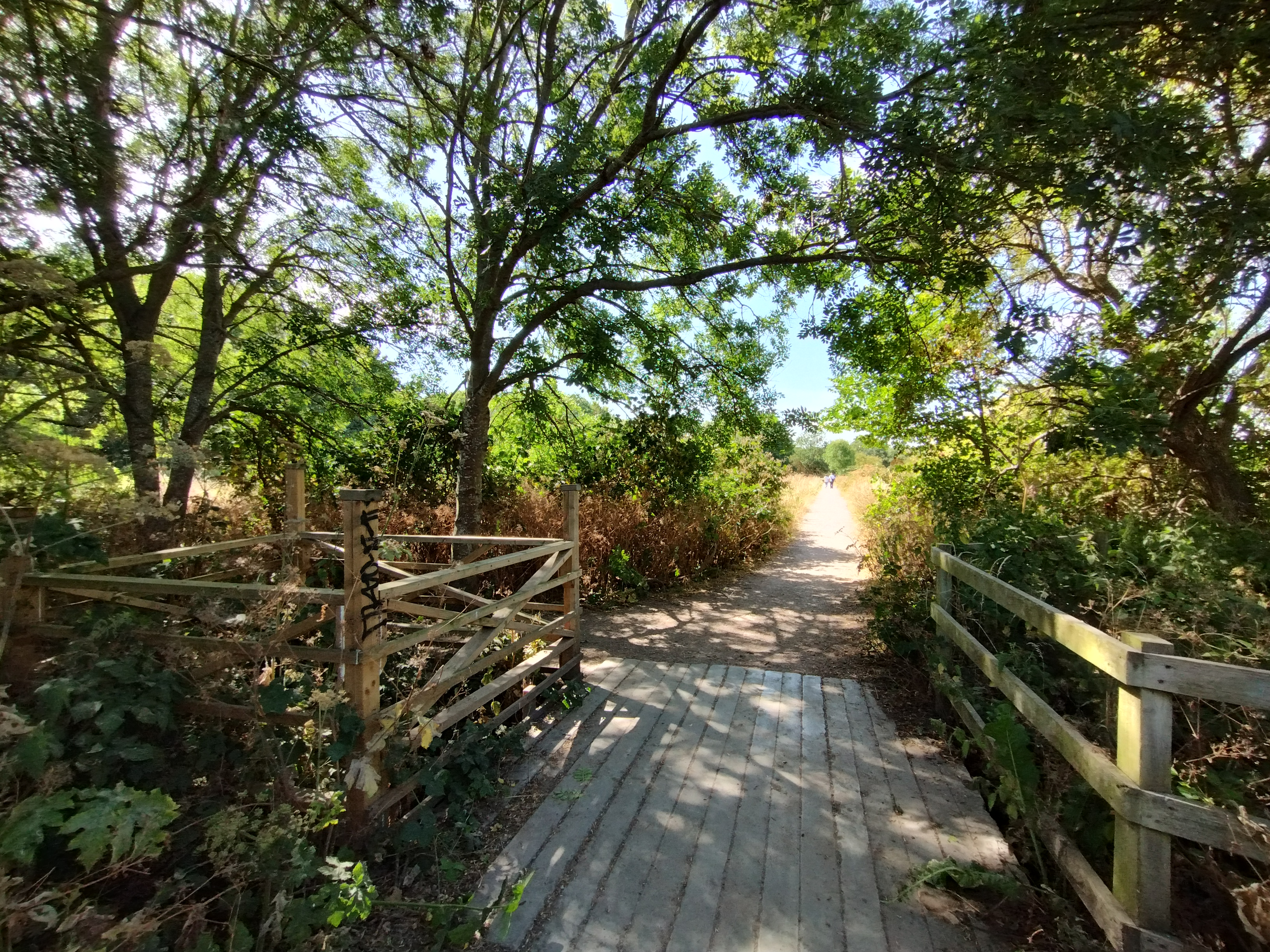
Motorola Moto G82 battery life
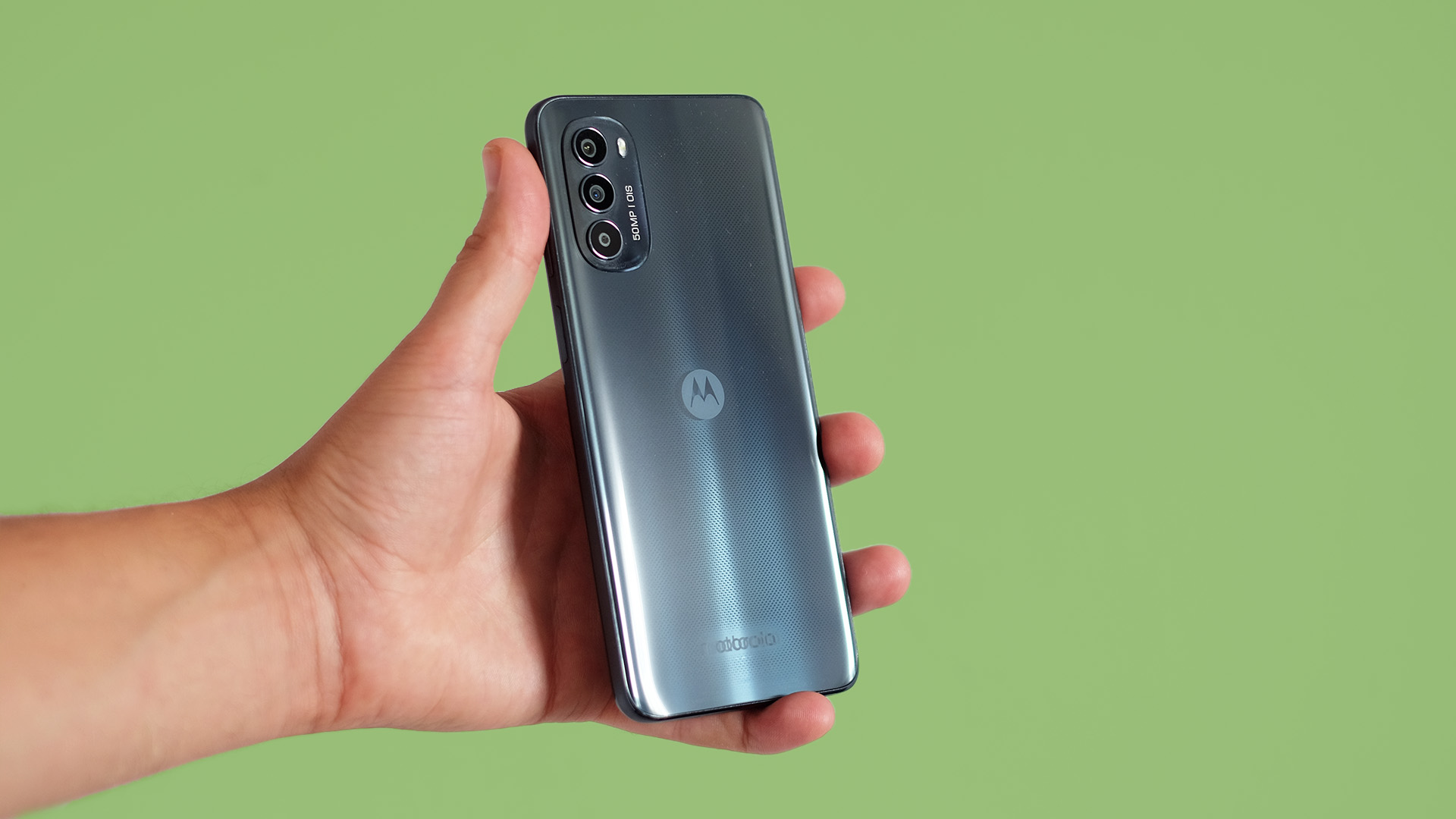
- Large 5,000mAh battery
- Supports 30W fast charging
- 50% charge in under 30 minutes
The Motorola Moto G82 5G has a 5,000mAh battery, the same capacity seen in a large and ever-increasing number of Moto-series phones. However, it’s good to see this capacity retained when this is a slightly slimmer handset than plenty of others in the Moto G family.
Real-world stamina is good, but predictably doesn’t quite reach that of some rivals, such as the 60Hz Sony Xperia 10 IV and the old 720p Moto G50 5G, which have slightly less demanding components. Such phones can last almost two days, even with more demanding usage patterns.
The Motorola Moto G82 5G is more likely to leave you with a solid but not mind-blowing 20-30% charge by the end of the day. However, there are a few techniques to tweak its longevity without switching on Battery Saver, which alters how the phone behaves.
An OLED panel means the “Dark” UI mode and a dark or black wallpaper should reduce display power use a tad. You can also switch the screen refresh rate down to 60Hz, which we did on a couple of occasions when we knew a longer day of use was ahead.
The Moto G82 also has good, although not remotely class-leading, fast charging. It supports 30W fast charging, and a 30W charger is included in the box.
This takes the phone from flat to 50% charge in 27-28 minutes, and it reaches 100% after 80 minutes. The Moto G82 continues to draw a charge at a measly 4W for a while after, but when you’re running low on juice, the 2%-a-minute charge rate means just 10 minutes plugged in can see you right for a long night.
There is, as is the norm at this level, no support for wireless charging.
- Battery score: 4/5
Motorola Moto G82 score card
| Attributes | Notes | Rating |
|---|---|---|
| Design | Thin design but plastic build, best keep the in-box case on. | 3.5/5 |
| Display | Nice 120Hz OLED panel could be brighter. | 4/5 |
| Software & performance | Clean UX but not the most powerful phone. | 3.5/5 |
| Cameras | OIS is nice but pictures are just OK. | 3/5 |
| Battery | Google longevity and decent fast charging speeds. | 4/5 |
| Value | A nice, low price for some premium features. | 4/5 |
Should I buy the Motorola Moto G82?
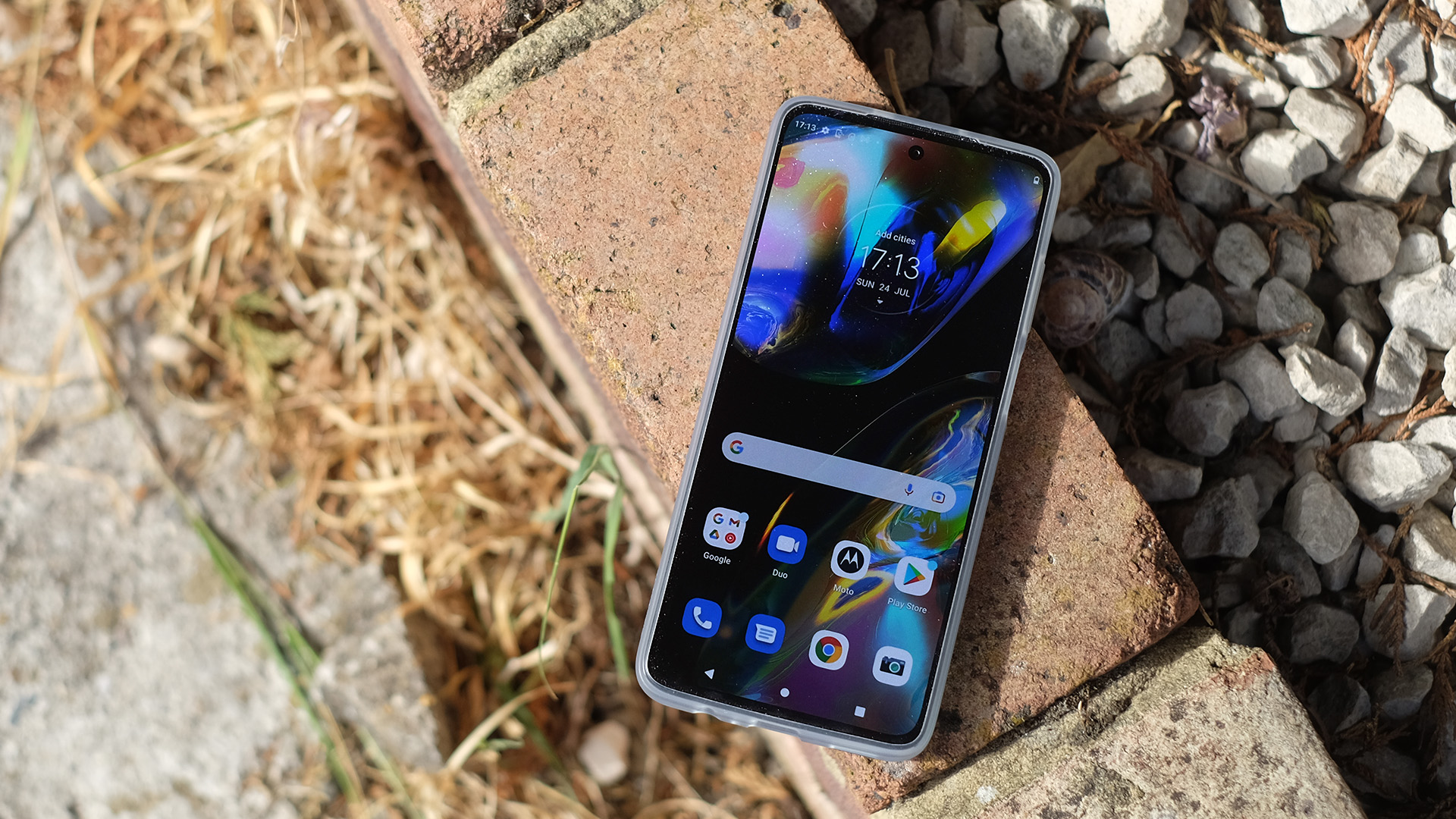
Buy it if...
Don't buy it if...
Also consider
The Moto G82 brings together a mix of technologies you wouldn't usually expect to see at this price point but that doesn't mean it's ahead in its category. As such, here are a trio of alternatives that might suit you better if you've decided the Moto G82 isn't for you.
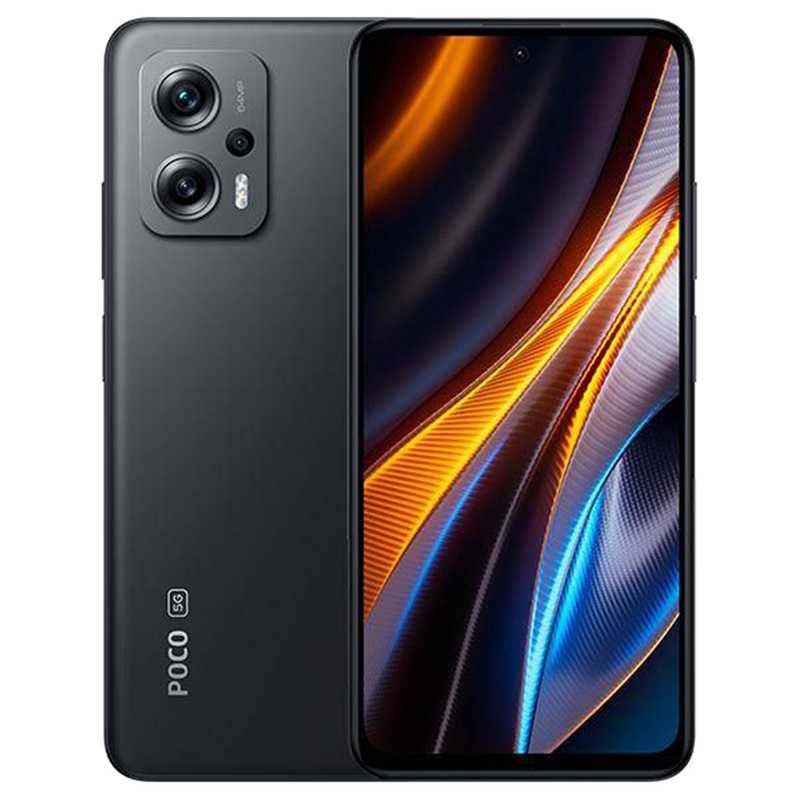
Poco X4 GT
This phone is much better for gaming thanks to its seriously powerful MediaTek 8100 SoC. Charging is faster, too, although it isn’t as readily available as the Moto G82 in some countries.
Read our Xiaomi Poco X4 GT review for more
- First reviewed September 2022
0 comments:
Post a Comment